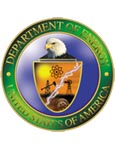
According to the DOE, "these projects will bring together some of the nation’s top researchers at the department’s national laboratories and U. S. universities to create the software and infrastructure needed to help scientists effectively utilize the next generation of supercomputers. DOE's supercomputers tackle complex scientific challenges - some of which can only be studied through high performance computation and simulation. These projects, selected from a total of 240 proposals, involve 70 institutions and hundreds of researchers and students."
Professor Han-Wei Shen has received a Scientific Discovery through Advanced Computing (SciDAC) award entitled SciDAC Institute for Ultrascale Visualization, this is a collaborative effort led by UC Davis. This project will assemble the scalable parallel visualization infrastructure needed to enable knowledge discovery at the petascale and instruct application scientists on how to best use these tools.
Professors DK Panda and P. Sadayappan also received funding from the DOE BASE Program for the collaborative project entitled Programming Models for Scalable Parallel Computing. This five year project led Argonne National Laboratory will focus on research and development in the area of programming models for scalable parallel computing
Professor DK Panda was awarded the second DOE award from the DOE BASE Program as part of a collaborative effort led by Argonne National Laboratory entitled Coordinated Fault Tolerance for High Performance Computing. Professor Panda's project will design a reference implementation of a fault awareness and notification backplane to provide common uniform event handling and notification mechanisms for fault-aware libraries and middleware; create an interface specification that allows libraries, run-time systems, and applications to connect to and use the fault-tolerant backplane; and extend key libraries and applications to validate the interface choices and to form the critical mass necessary for adoption in the community.